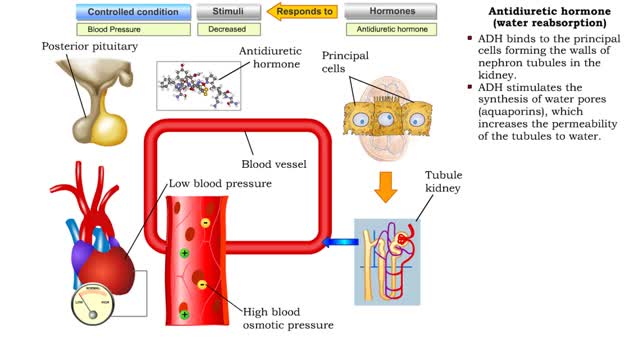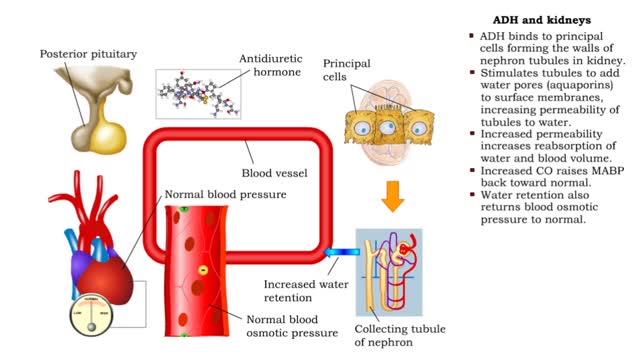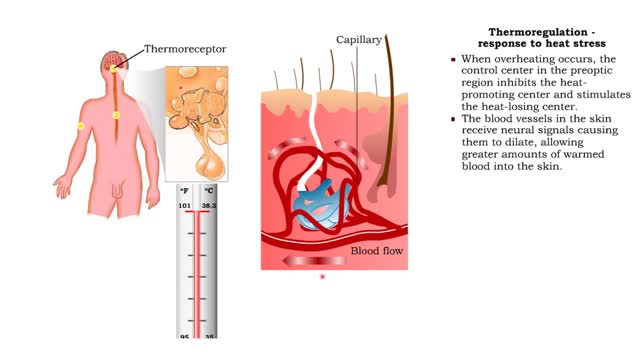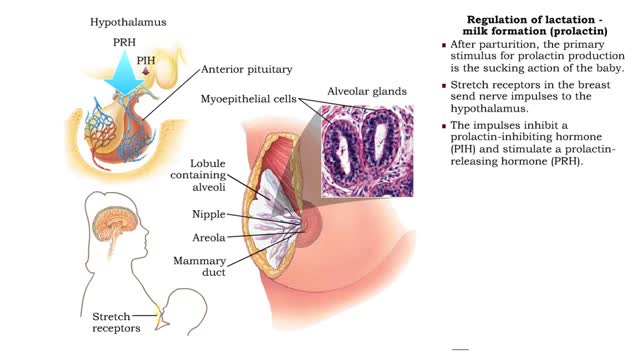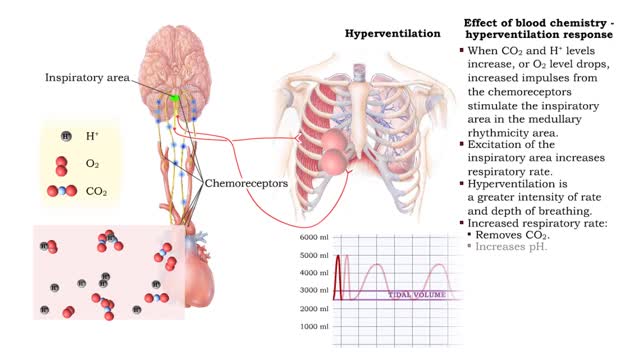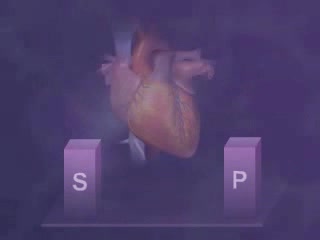Search Results
Results for: 'sweat inhibition'
Antidiuretic hormone (vasoconstriction, water reabsorption & sweat inhibition)
By: HWC, Views: 10288
• Dehydration, blood loss, and low amounts of water in the blood can cause blood volume and pressure to decrease. • Neurosecretoxy cells in the posterior pituitary release antidiuretic hormone(ADH). • ADH binds to smooth muscle cells in blood vessel walls, stimulating them to vasoconstr...
ADH and the arterioles, kidneys, sweat glands and the Atrial natriuretic peptide (ANP)
By: HWC, Views: 10523
• ADH is also known as vasopressin. • Produced by hypothalmus and secreted by neurosecretory cells in posterior pituitary gland. • Responds to high blood osmotic pressure representing low amounts of water in the blood. • Binds to smooth muscle cells in walls of arterioles, stimulate...
Metabolic Rate, Heat and Thermoregulation - response to heat and cold stresses
By: HWC, Views: 10643
• A neuron group in the anterior portion of the hypothalamus controls heat balance. • Neurons in the preoptic region of the hypothalamus integrate signals that come from thermoreceptors. • The temperature control center in the preoptic region propagates control signals to two other part...
By: HWC, Views: 11206
Regulation of lactation - breast preparation • Pregnancy hormones trigger breast changes to prepare for feeding the new baby. • The amount of the hormone prolactin, essential to the initiation of lactation, increases steadily throughout pregnancy. • However, high levels of both estroge...
Effect of blood chemistry - stimuli, hyperventilation response and hypoventilation response
By: HWC, Views: 10115
• Respiratory rate is effected by changes in: • Blood pH. • Blood Pco2. • Blood P02. • Chemoreceptors in the central and peripheral nervous systems closely monitor the Fr, CO2 and 02 levels in blood. • Changes in frequency of impulses from Chemoreceptors affect respiratory r...
Autonomic Nervous System Animation
By: Administrator, Views: 13746
Parasympathetic Division Works to conserve energy and innervate the digestive system. When activated, it: stimulates the salivary and digestive glands. decreases the metabolic rate. slows the heart rate. reduces blood pressure. promotes the passage of material through the intestines along...
Advertisement



